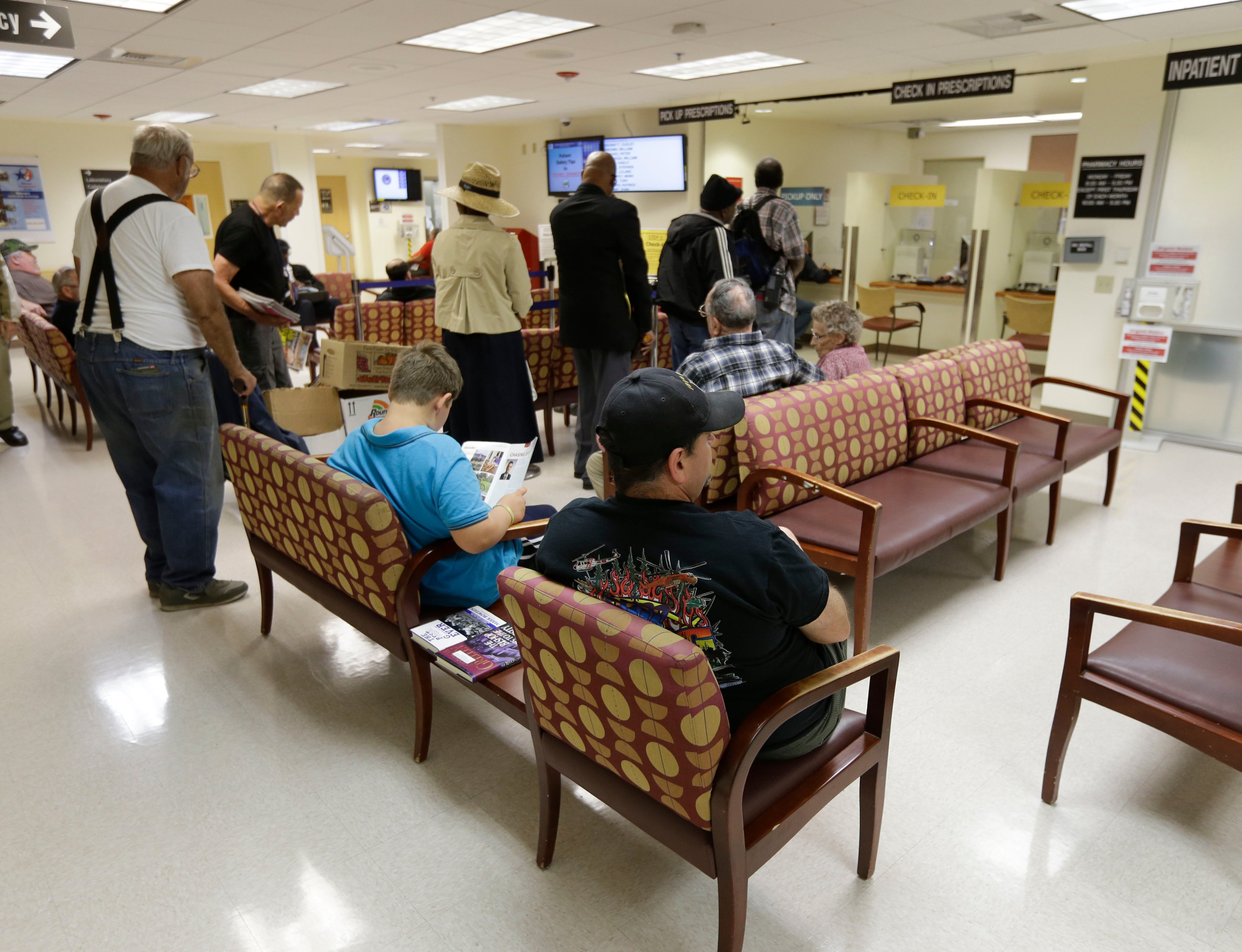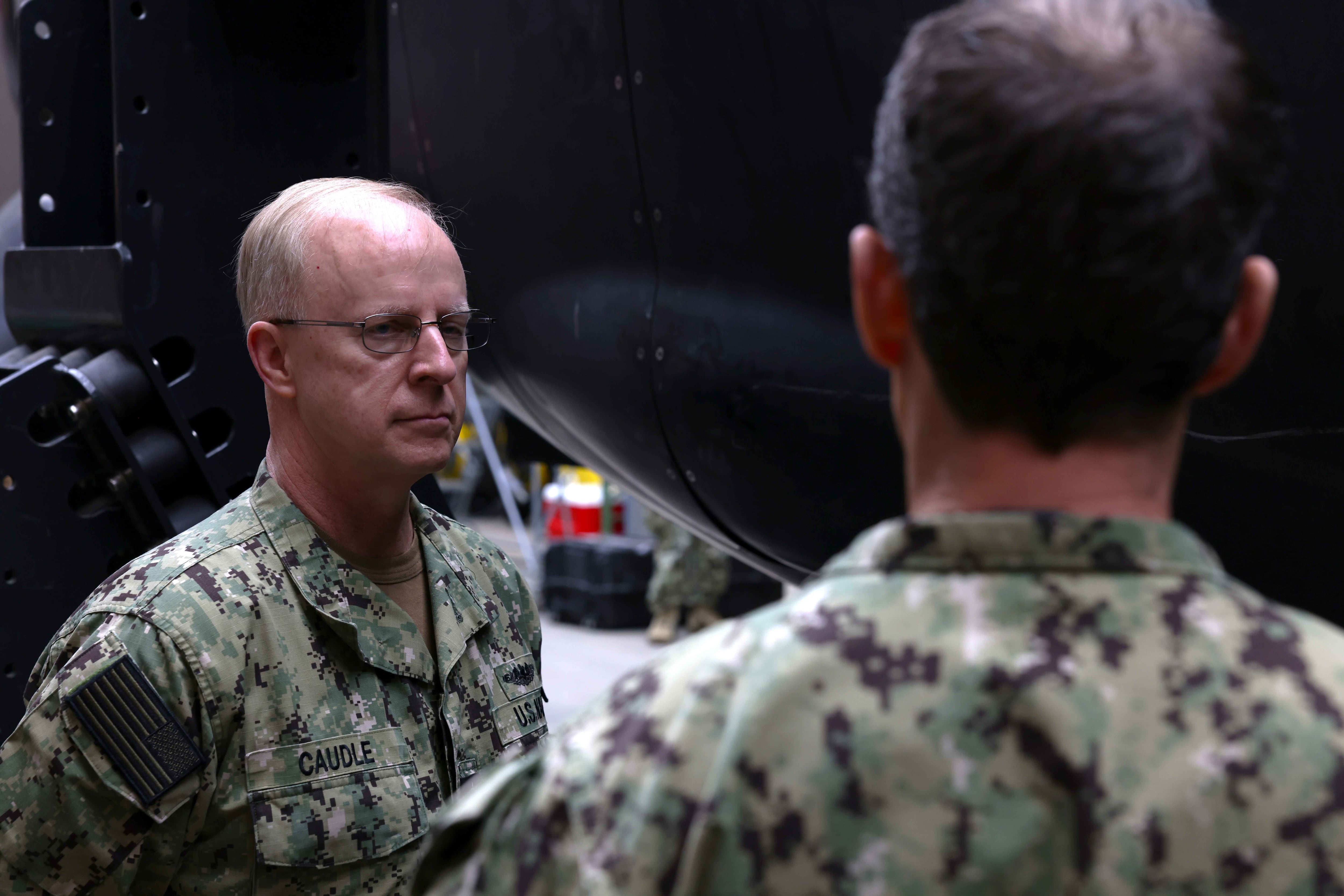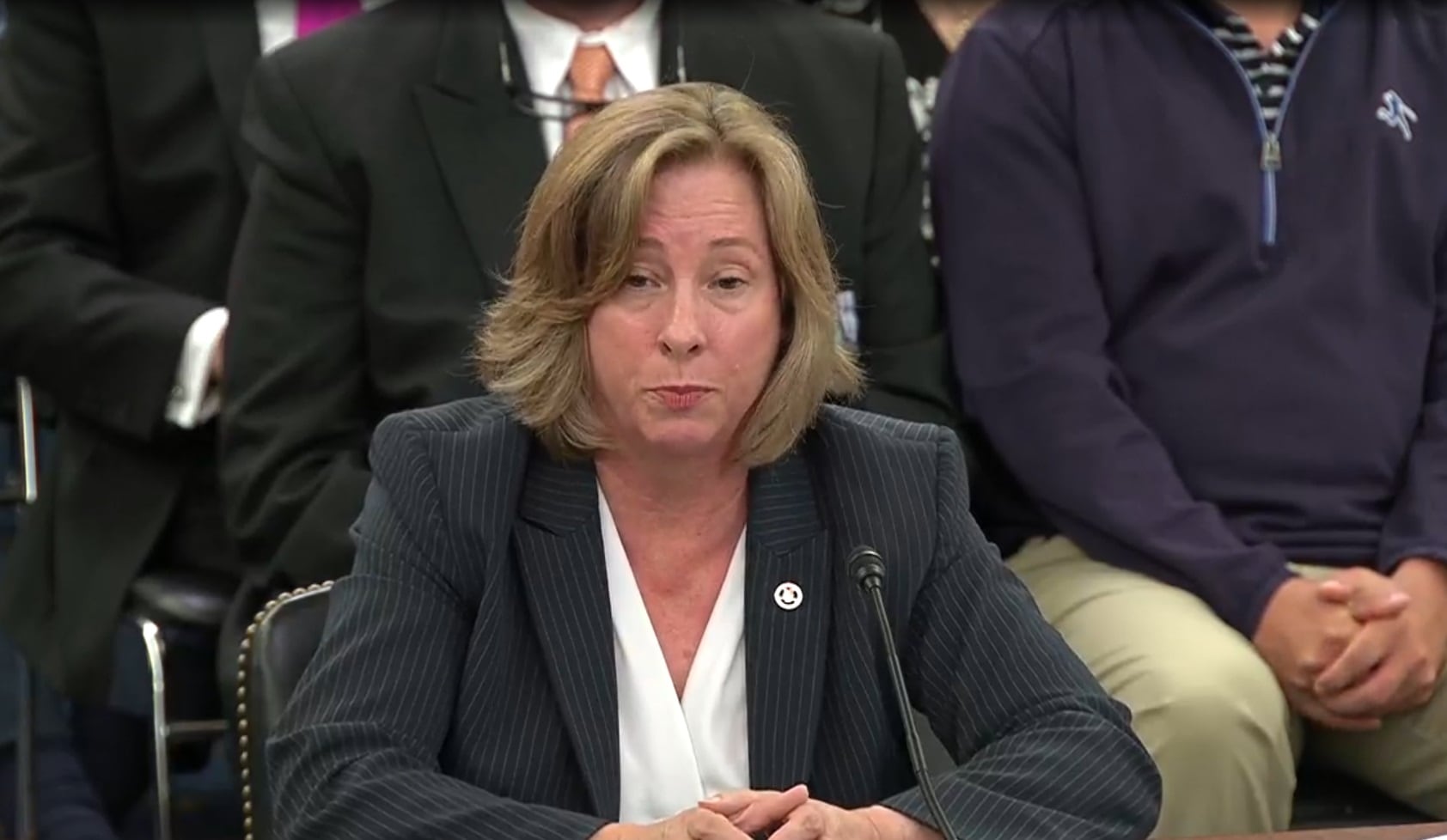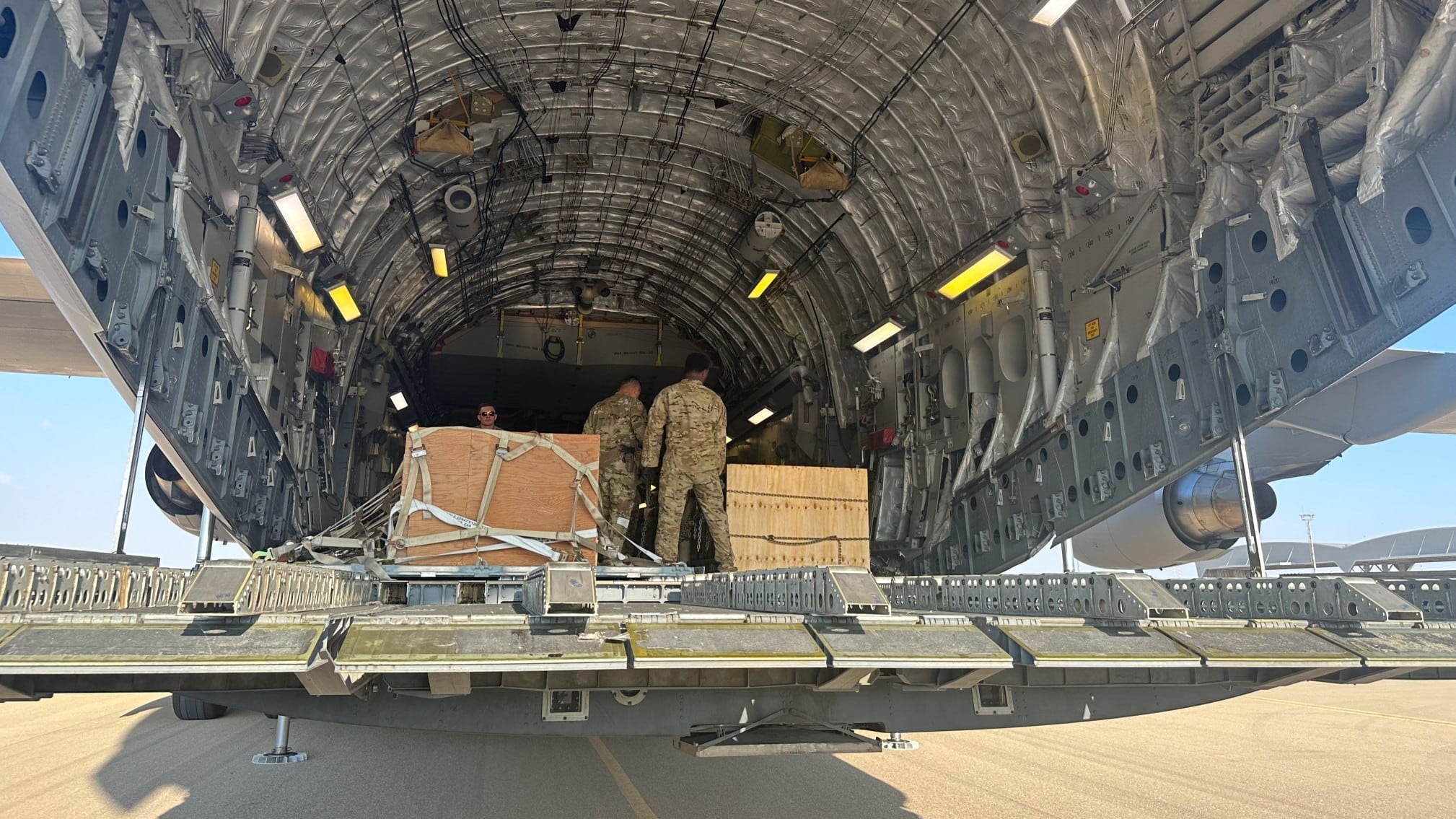A new Marine task force Air-Ground Task Force set to become active in South and Central America in time for hurricane season will use a new seabasing platform — the joint high-speed vessel — to transport troops Marines around the region.
Special Purpose Marine Air-Ground Task Force-South, a unit comprising force of about 250 Marines to be headquartered at Soto Cano Air Base, Honduras, will answer a range of needs ranging from partner nation training to humanitarian assistance and counter-drug missions. It's set to become active in June.
At a Washington, D.C. event in late February earlier this month, Assistant Commandant Gen. John "Jay" Paxton said the new land-based unit may also make use of new Navy platforms designed to fill gaps in amphibious shipping.
"We're going to work with the Navy to see if there are single ship steamers that are available. We'll look at alternate platforms ... JHSVs and things like that," Paxton said. "We're working through not only the demand signal and the mission sets that [U.S. Southern Command Commander Gen. John Kelly] has but the capability and of the Navy and Marine Corps team for providing that."
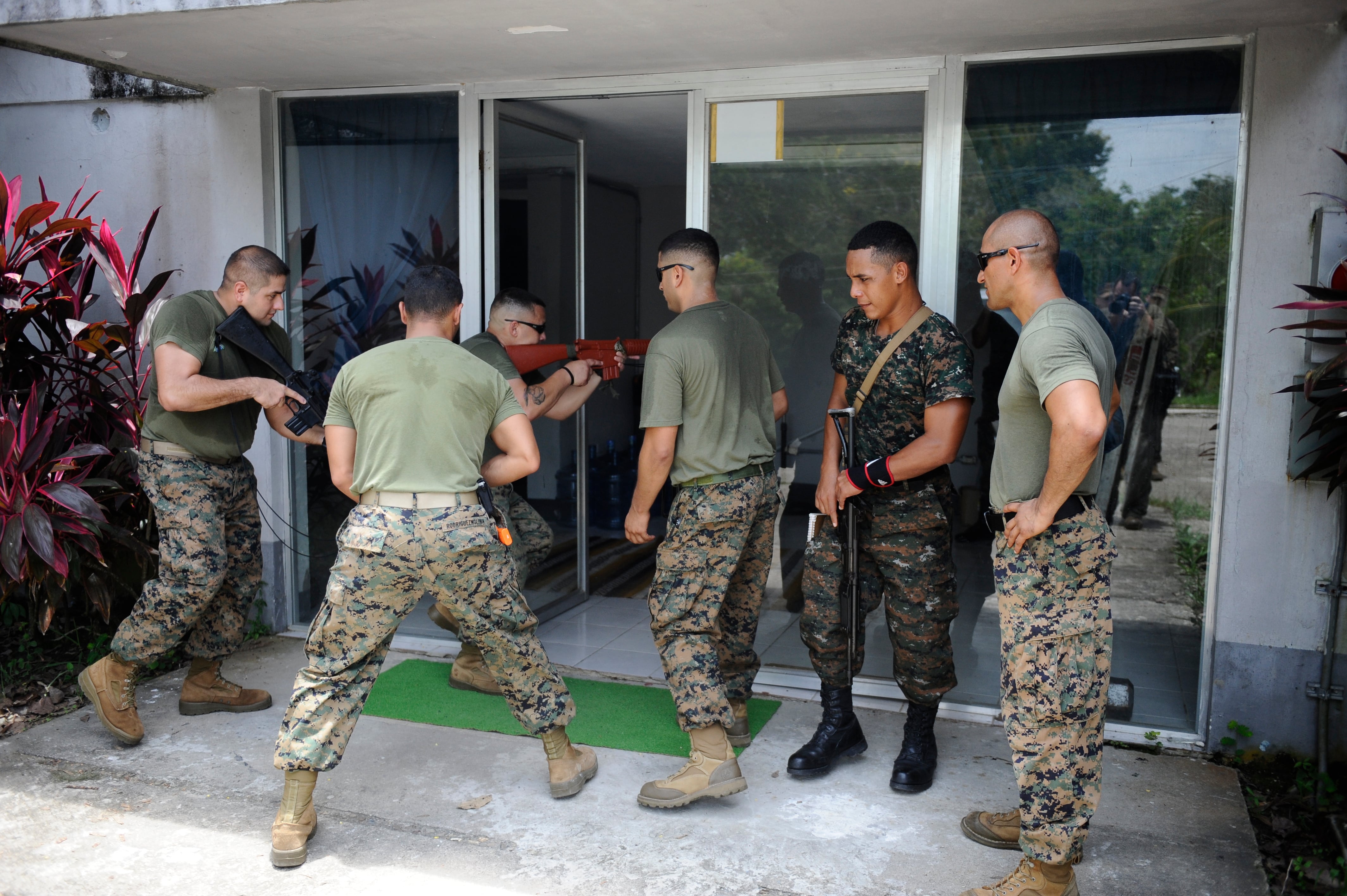
Marines with a security cooperation team work with local marines in Puerto Barrios, Guatemala, to simulate a house clearing. Marines deploying to Central America this summer will conduct partnership training exercises.
Photo Credit: Mike Morones/Staff
Lt. Col. Ignacio Soria, chief plans officer, G-5 for Marine Forces South, confirmed that task force Marines were set to be transported on the JHSV Spearhead, the first vessel in its class.
"It is planned right now," he said. "The only thing that would derail that is if for some reason there was some emergent need that required Fleet Forces Command or Military Sealift Command to divert the mission."
Soria said the task force, which will send small detachments of Marines to locations throughout Central and South America, highlights the primary purpose of the JHSV: intra-theater lift.
"It literally lifts the Marines from port to port in the [area of responsibility]," he said.
While plans now call for use of just the sSpearhead, another vessel — the Burlington — could also be stationed in the 4th Fleet region sometime prior to fiscal 2017, pending a final decision, Soria said.
It's not the first time Marines will make use of the JHSV in theater. The Spearhead provided transportation to Marines from Camp Lejeune's 8th Engineer Support Battalion from May to October of last year in support of Southern Partnership Station 2014, according to a March report from the Marine Corps Center for Lessons Learned. The vessel, which divides its time between SOUTHCOM and Europe and Africa, has also been used by other Marine detachments in the region.
According to Capt. Armando Daviu, a spokesman for MarForSouth, SPMAGTF South will is also set to be equipped with four CH-53E Super Stallion Helicopters when activated, said Capt. Armando Daviu, a spokesman for MARFORSOUTHarForSouth, . The Marine units that will send personnel to the task force have not yet been identified, he said, but they are expected to come primarily from II Marine Expeditionary Force, headquartered in North Carolina.
Paxton said the demand for SP-MAGTF-South was tied to the successful creation of Marine crisis response task forces for Africa and the Middle East in recent years, joking that "no good deed goes unpunished." Because of finite resources, he said, the task force would be different and smaller than the other response special purpose units, but fine-tuned to the needs of the region.
"So wWe are committed to tailoring some type of task force, and they are training right now, that would be able to do those missions that Gen. Kelly needs, primarily building partnership capacity ... with South American nations and some counter-narcotics, counter drug mission capability," Paxton said. "We're committed to provide that to him."
According to current planning, the task force will be active between June and November before redeploying to the States until the following spring. Its work will augment that of small Marine detachments already in the region, including a civil affairs team in Belize, and security cooperation teams in the countries of Honduras, El Salvador, Belize and Guatemala, and a separate civil affairs team in Belize.

